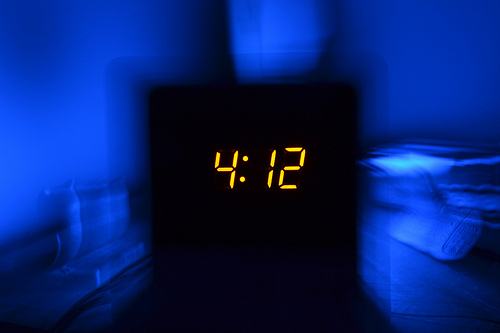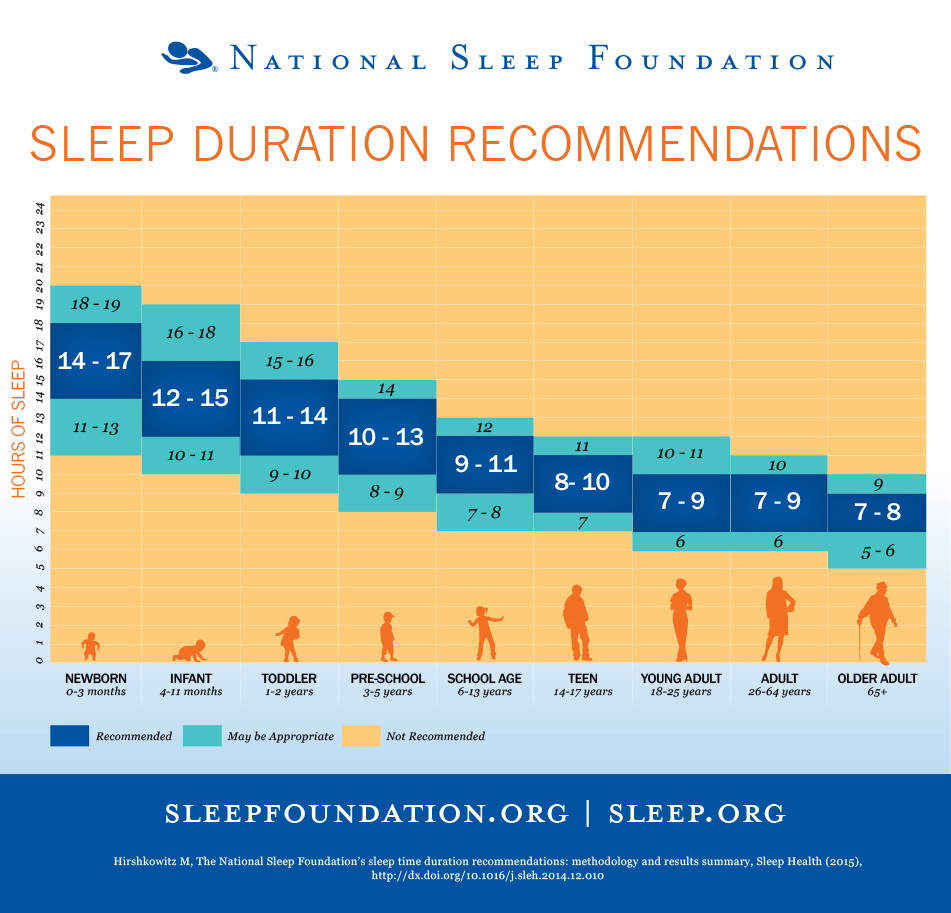Without a doubt, our toddler is — and always has been — the best sleeper in our house. For ADHD adults, getting to bed, falling asleep, and staying asleep can all be challenging.


What’s more, effective ADHD symptom management during the day depends on good sleep habits. Adults need 7-8 hours of of sleep per night, and teens even more: around 8-10 hours. Short yourself on sleep and you’re guaranteed to worsen your symptoms — and your ability to deal with them. Averaging four hours of sleep per night for even 4-5 days creates cognitive impairments equivalent to being awake for 24 straight hours.
We all know sleep is important, but most ADHD adults still struggle to get enough of it. Changing sleep habits isn’t easy. Here are some tips that have helped our family:
Start a (sleepy) tea habit
A solid routine can help get you into bed on time. One of my husband’s and my favorite before-bed rituals is enjoying a cup of Republic of Tea’s ‘Get Some ZZZ’s’ tea together.
I don’t get any benefits from recommending that particular tea, I just wanted to share it with you because it tastes great and helps us sleep. Its magic ingredients are valerian root extract and chamomile, both mild sedatives. My husband, my two-year-old, and I have all used “sleepy tea” to help us fall asleep or stay asleep at night.
Ditch the screens & check the color of your bedroom light
Take a walk through most neighborhoods at night and you’ll see living rooms illuminated by the flickering, blue light of the television.
That blue-rich light — flooding your eyes from TV, smart phone, tablet, and other screens in your home — will disrupt your sleep hormones and make it harder to fall and stay asleep. In his lovely book The End of Night, author Paul Bogard warns of the effects screens and other blue-rich lights — think fluorescent lighting, LED street lamps, etc. — have on our brains’ ability to get adequate rest.
Check the light bulbs in your bedroom: do they cast a warm, soft light, or are they harsh and blue, like the morning sun? Do you often bring a tablet, phone, or even a laptop to bed with you? Does light from the street stream in through your bedroom window? You may be damaging your sleep more than you think.
Beware of triggers & traps
One night, after my husband stayed up until 5:00 a.m. (he gets up for work at 6:15), I said, “I knew this would happen,” and he said, “how? I didn’t even know.”
I pointed out that if he starts working on a particular kind of computer programming project later in the evening, he’s bound to stay up all night because he can’t pull himself away.
If you have an activity like this, set a time after which you will not touch it. When you’re tired and your medication has worn off, you may not have it in you to control your focus and break away at an appropriate time.

Set a cut-off for starting new tasks
Dr. Kelly McGonigal described a sleep-deprivation cycle in her book The Willpower Instinct: one student, “Lisa,” told McGonigal about the “million and one things that each seemed more critically urgent the later[it] got…[she] was hooked on doing ‘one more thing’ before she went to sleep.”
Sound familiar? This happens frequently in our house.
Lisa’s story has a happy ending: she set a rule that she’d turn off the TV and computer and commit to starting no new projects after 11:00 p.m. This allowed her to stop and notice how tired she was, and she started getting to bed by midnight.
Decide when you need to be in bed to get 7-9 hours of sleep each night, then turn off the TV and computer an hour beforehand. This has the added bonus of removing sleep-defeating, blue-rich light from your eyes. Then, wrap everything up. No new tasks, no new projects, no one more thing.
This is so much harder than it sounds. It can feel impossible. If you’re struggling, ask someone for help, and accept that help. Which leads me to the most important step of all…
Ask for help, and make sure you accept it
Most sleep advice feels much easier said than done. Sometimes we all need a little help and encouragement to break a bad habit.
In our family, attempts to corral a hyperfocusing or procrastinating ADHD adult can be met with crankiness, if not outright hostility. Each situation feels unique: I know I said I was about to get ready for bed, but I really need to sit down at my computer and do this before I forget. Or, I know I’ve stayed up late doing this before, but I won’t tonight.
If you’re running in circles with sleep deprivation, enlist a helper: someone who will (gently) remind you of your goal at the right moment.
When you ask for help, be prepared to receive it with gratitude. Don’t argue, fight, or inflict your case of I don’t wanna on someone who has your best interest at heart.
Do you struggle with sleep? What have you tried, and what has worked?
Hey there! Are you enjoying The ADHD Homestead?
Here's the thing: I don't like ads. I don't want to sell your attention to an advertising service run by the world's biggest data mining company. I also value my integrity and my readers' trust above all, which means I accept very few sponsorships/partnerships.
So I'm asking for your support directly. For the cost of one cup of coffee, you can help keep this site unbiased and ad-free.
Below you will find two buttons. The first lets you join our crew of Patreon pals and pledge monthly support for my work. Patrons also have access to my Audioblogs podcast. The second takes you to a simple donation page to pledge one-time or recurring support for The ADHD Homestead, no frills, no strings. Do whichever feels best for you!

